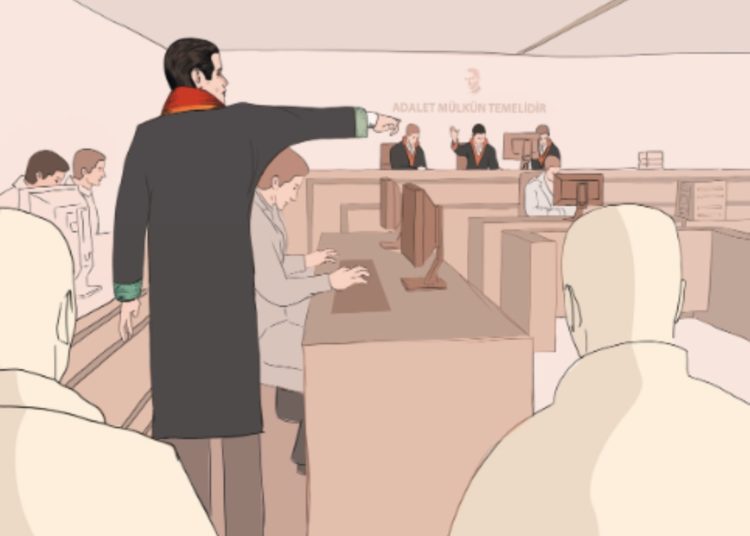Abdullah Bozkurt
A document obtained by Nordic Monitor confirms how the official narrative of an attempted coup in Turkey on July 15, 2016, which was by and large built on false statements extracted from officers under torture, was built.
According to a legal motion filed by Maj. Oğuzhan Konuk with the Ankara 17th High Criminal Court on June 15, 2017, he was forced to falsely identify a civilian who was accused of working with officers taking part in the abortive putsch. Konuk said he was tortured while in police custody at the Başkent Sporting Hall, an unofficial, makeshift detention center where systematic torture and ill treatment were inflicted on detainees in the aftermath of the coup attempt.
Konuk wrote that he was in police custody in the sporting hall between August 8 and 12, 2016 and was forced identify a man named Mustafa Akyıldız, although he did not know him at all. He asked the court to determine which officials tortured him there and forced him to sign a false statement saying that he knew Akyıldız.
The motion was handwritten by Konuk, who handed the document to authorities at Ankara’s Sincan Prison so it could be forwarded to the court.

Akyıldız, a civilian who was alleged to be affiliated with government-critical Gülen movement, was accused of being a handler and secretly working with officers during the coup attempt. Both of them as well as hundreds of others are being tried for events at Turkish military headquarters and face aggravated life sentences if convicted.
In a hearing on November 22, 2017 Konuk testified that he was assigned to General Staff headquarters five days before the failed coup and that he was part of a team that was preparing for a Supreme Military Council (Yüksek Askeri Şura) meeting. He was told there was a terrorist attack under way when he saw special operation units storming the building. He was assigned to guard duty to protect the perimeter and never used his gun.
The General Staff’s military investigation report cleared him of any wrongdoing, and he continued to serve in the army for 20 days after the coup bid. He repeated what he wrote in his legal brief earlier and claimed that he was tortured and forced to name people he did not know in a statement he was compelled to sign. He was repeatedly asked about links to the Gülen movement.
Konuk’s testimony on what happened during his detention in the Başkent Sporting Hall is one of many torture cases that were earlier reported. The goal was to extract confessions, albeit false, to build a convincing criminal case against the movement, led by US-based Turkish Muslim scholar Fethullah Gülen, a vocal critic of the Recep Tayyip Erdoğan regime on a number of issues.
The United Nations as well as nongovernmental organizations have widely reported on torture cases mainly targeting members of the Gülen movement in Turkey’s prisons and detention centers.












